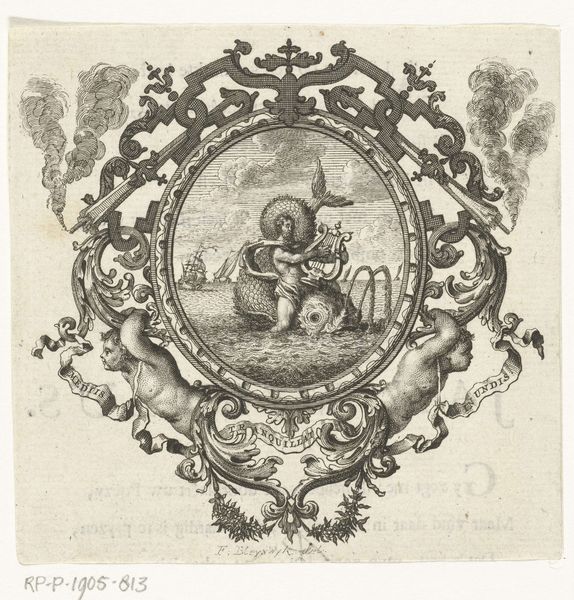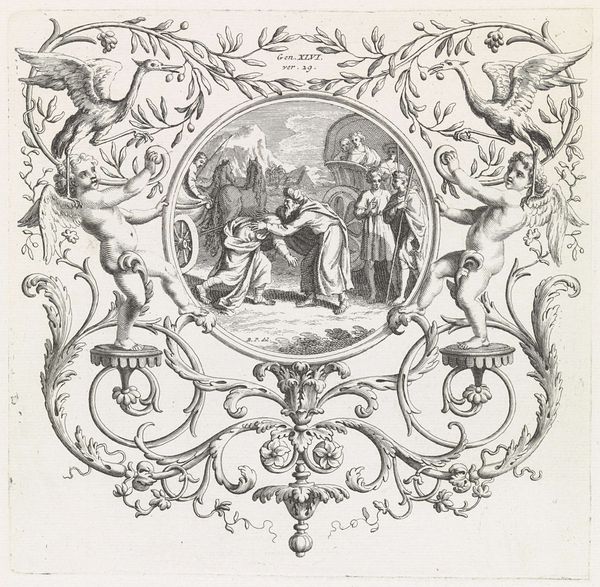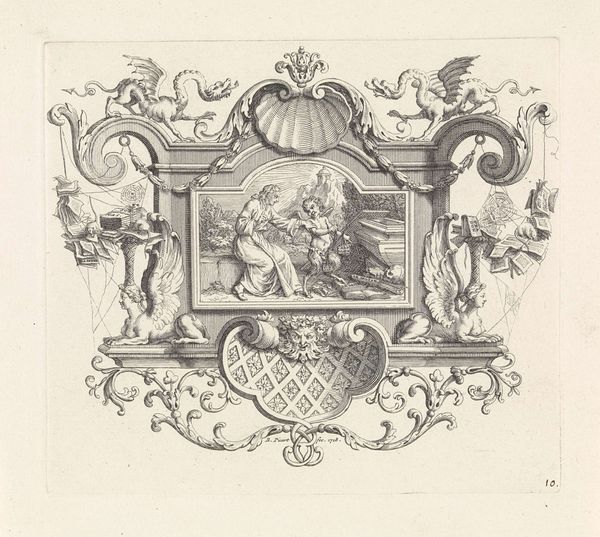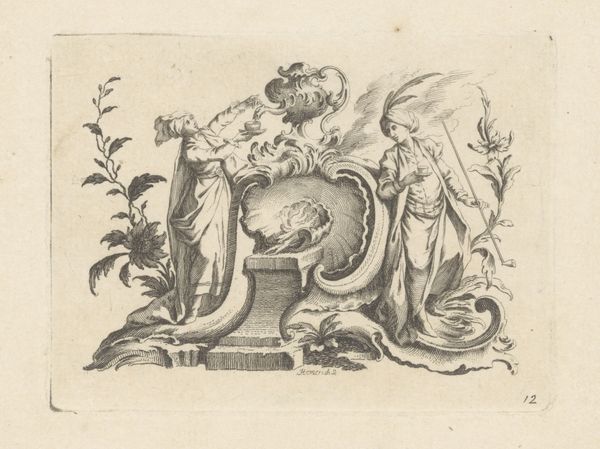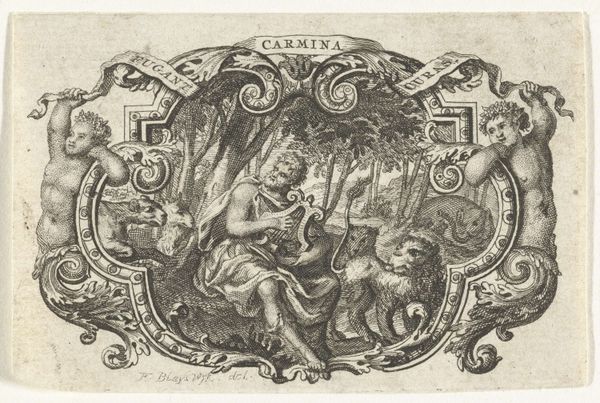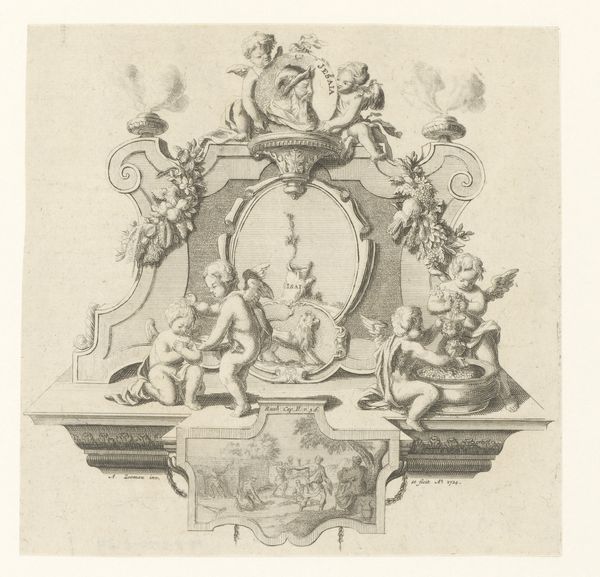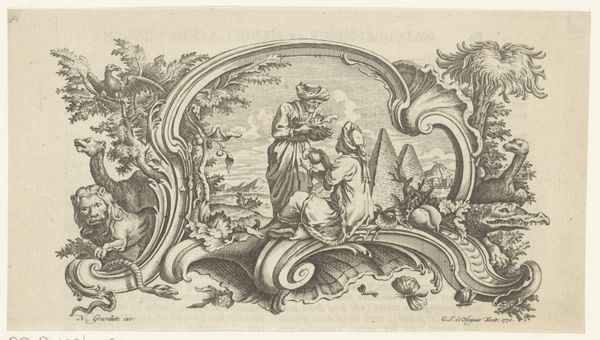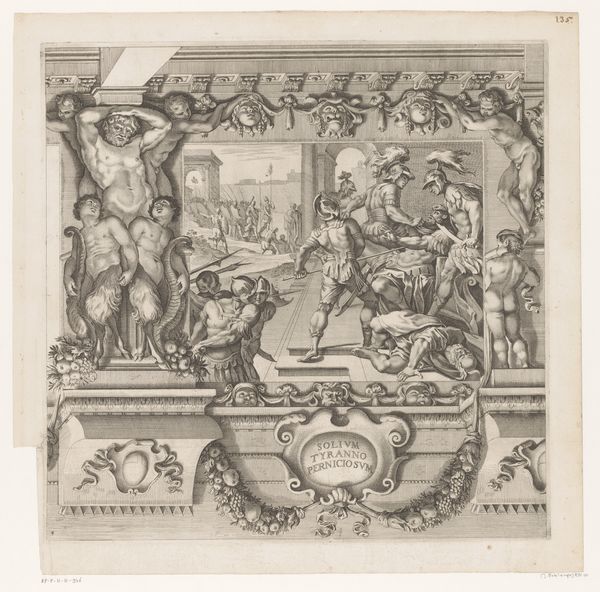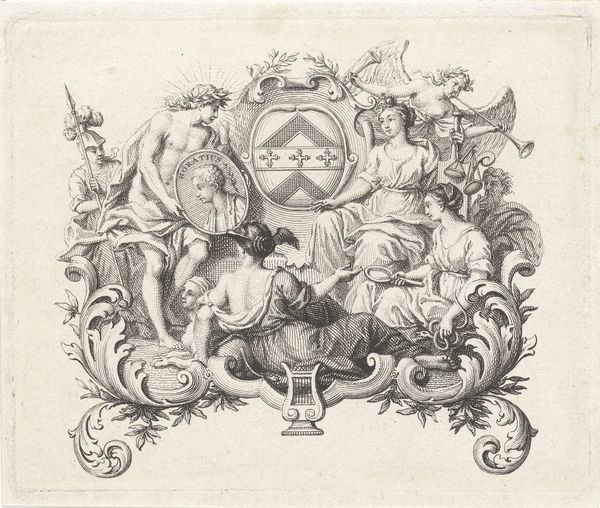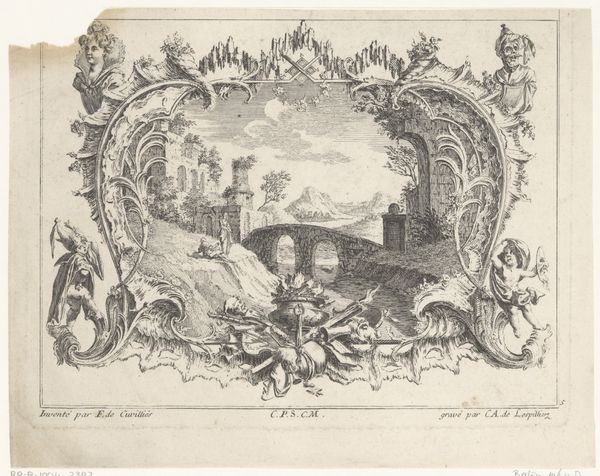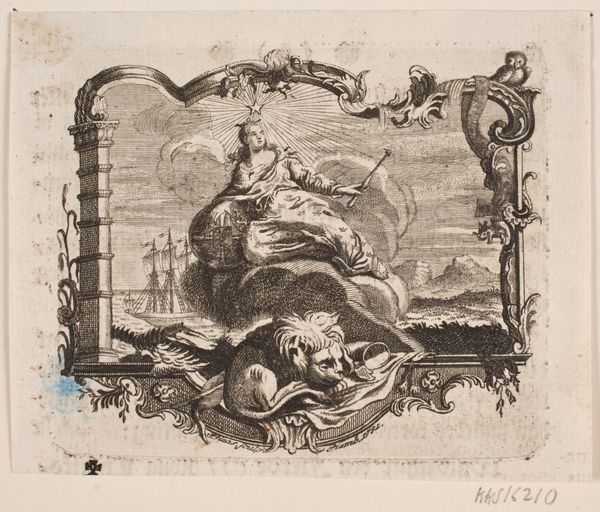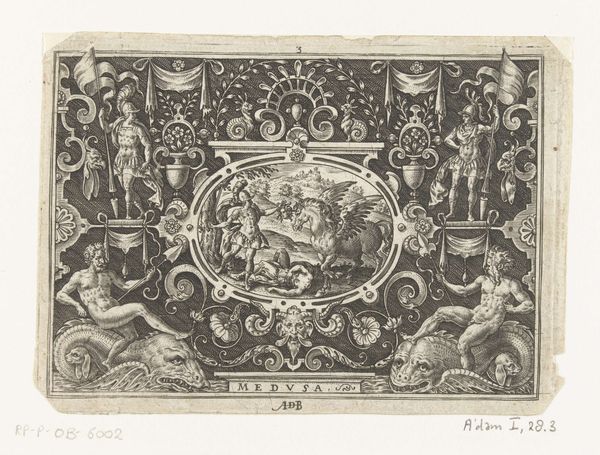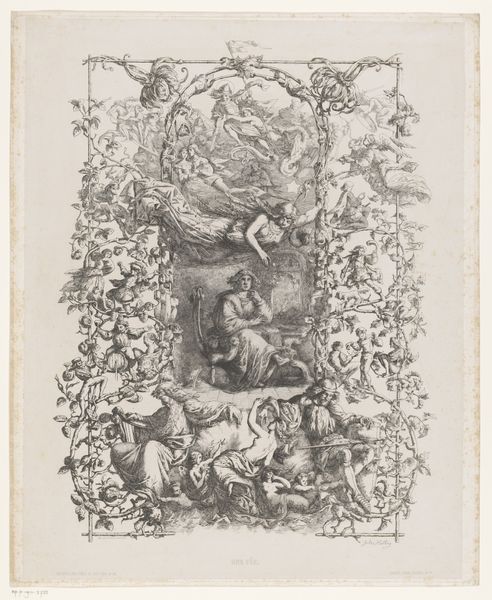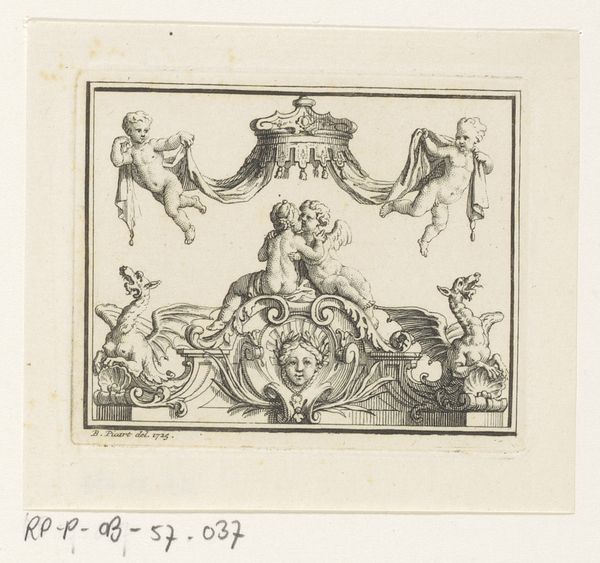
Allegorische voorstelling met mogelijk de Dauphin gezeten op een dolfijn 1614 - 1678
0:00
0:00
pierredaret
Rijksmuseum
print, engraving
#
allegory
#
baroque
# print
#
old engraving style
#
figuration
#
pen-ink sketch
#
history-painting
#
engraving
Dimensions: height 156 mm, width 156 mm
Copyright: Rijks Museum: Open Domain
This is a small, square engraving, made by Pierre Daret sometime in the 17th century. We see a child, possibly the Dauphin, riding a dolphin in a highly decorative and symbolic scene. The composition is rigorously symmetrical, drawing our eye centrally, and the intricate detail invites close inspection. Daret uses the structured arrangement of elements to make a statement about power and lineage. The dolphin, a symbol of guidance and salvation, carries the Dauphin, while angels with trumpets flank him, announcing his arrival. The flag bearing the fleur-de-lis reinforces the message of royal authority. The symmetry and allegorical figures aren't just aesthetic choices; they're a visual language. Each element functions as a signifier, contributing to a broader narrative of divine right and dynastic succession. The overall effect is one of controlled grandeur, where every line and form serves a precise purpose. Daret's structured, formal approach transforms a simple image into a powerful statement.
Comments
No comments
Be the first to comment and join the conversation on the ultimate creative platform.
